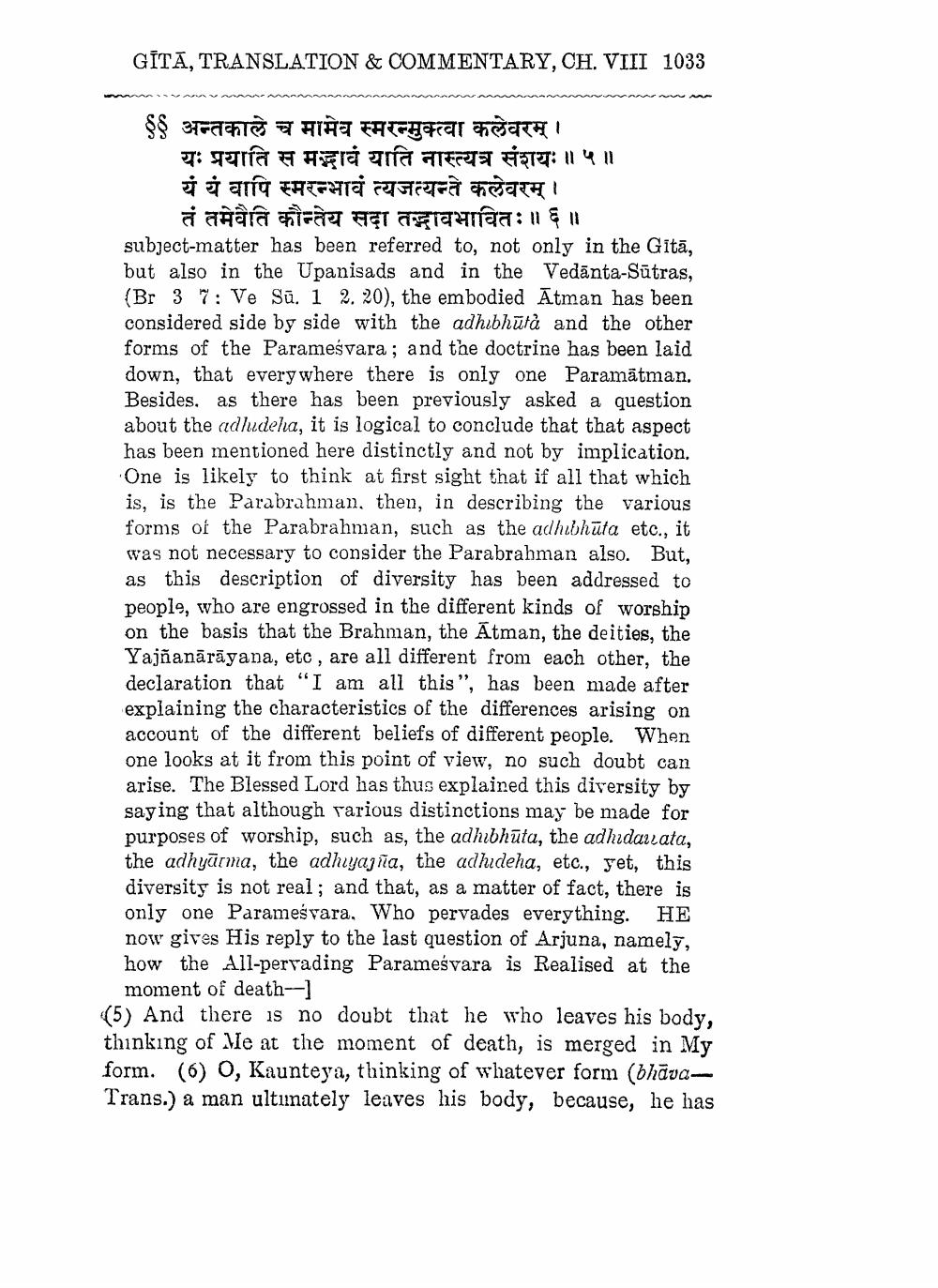________________
GĪTĀ, TRANSLATION & COMMENTARY, CH. VIII 1033
$ अन्तकाले च मामेव स्मरन्मुक्त्वा कलेवरम् ।
यः प्रयाति स मद्भावं याति नास्त्यत्र संशयः॥५॥ यं यं वापि स्मरन्भावं त्यजत्यन्ते कलेवरम् ।
तं तमेवैति कौन्तेय सदा तद्भावभावितः॥६॥ subject-matter has been referred to, not only in the Gītā, but also in the Upanisads and in the Vedānta-Sūtras, (Br 3 7 : Ve Sū. 1 2. 20), the embodied Ātman has been considered side by side with the adhibhūtà and the other forms of the Parameśvara ; and the doctrine has been laid down, that everywhere there is only one Paramātman. Besides, as there has been previously asked a question about the adludela, it is logical to conclude that that aspect has been mentioned here distinctly and not by implication. One is likely to think at first sight that if all that which is, is the Parabrahman, then, in describing the various forms of the Parabrahman, such as the adhibhūta etc., it was not necessary to consider the Parabrahman also. But, as this description of diversity has been addressed to people, who are engrossed in the different kinds of worship on the basis that the Brahman, the Ātman, the deities, the Yajñanārāyana, etc, are all different from each other, the declaration that "I am all this", has been made after explaining the characteristics of the differences arising on account of the different beliefs of different people. When one looks at it from this point of view, no such doubt can arise. The Blessed Lord has thus explained this diversity by saying that although various distinctions may be made for purposes of worship, such as, the adhibhūta, the adhıdarata, the adhyārma, the adhiyagna, the adhideha, etc., yet, this diversity is not real; and that, as a matter of fact, there is only one Parameśvara, Who pervades everything. HE now gives His reply to the last question of Arjuna, namely, how the All-pervading Parameśvara is Realised at the moment of death--) (5) And there is no doubt that he who leaves his body, thinking of Me at the moment of death, is merged in My form. (6) 0, Kaunteya, thinking of whatever form (bhāvaTrans.) a man ultunately leaves his body, because, he has




